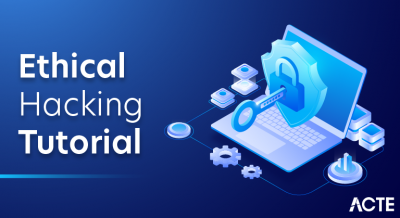
- CISSP- full form Certified Information Systems Security Professional is considered as a quality standard in the field of information security.
- This Cyber certification is offered by (ISC)2 which is an international non-profit organization with more than 200k certified members. The certification was introduced in 1994 and is most required security certification on Linkedin. The exam is available in 8 languages at 882 locations in 114 countries. The certification meets ISO/IEC Standard 17024.
- Today, many IT security professionals prefer CISSP certification training. It provides information security professional with an objective to measure competence and a globally recognized standard of achievement.
Certified Information Systems Security Professional
CISSP stands for Certified Information Systems Security Professional. It is a globally recognized certification in the field of information security. CISSP certification is provided by the International Information System Security Certification Consortium, also known as (ISC)².
The CISSP certification is designed to validate an individual’s knowledge and expertise in various areas of information security, including risk management, access control, cryptography, security architecture and design, network security, and more. It covers a broad range of topics and is considered a comprehensive and prestigious certification in the field.
To obtain the CISSP certification, candidates must have a minimum of five years of professional work experience in at least two of the eight CISSP Common Body of Knowledge (CBK) domains. These domains are:
Top 20 Benefits of CISSP
Obtaining the CISSP (Certified Information Systems Security Professional) certification offers numerous benefits for professionals in the field of information security. Here are the top 20 benefits of CISSP:
Skills Developed After Cissp Certification
After obtaining the CISSP (Certified Information Systems Security Professional) certification, professionals develop a range of valuable skills in the field of information security. Some of the key skills developed through CISSP certification include:
- Risk Management: CISSP equips professionals with skills in assessing and managing risks associated with information security, allowing them to make informed decisions and prioritize mitigation efforts.
- Access Control: CISSP covers access control concepts, techniques, and technologies, enabling professionals to design and implement robust access control systems to protect sensitive information.
- Security Architecture and Design: CISSP provides knowledge and understanding of security architecture principles, allowing professionals to design and develop secure IT systems and networks.
- Cryptography: CISSP covers cryptographic algorithms, protocols, and their applications, equipping professionals with the skills to implement encryption and secure communication mechanisms.
- Security Operations: CISSP focuses on security operations and incident response, enabling professionals to effectively detect, respond to, and mitigate security incidents.
- Identity and Access Management (IAM): CISSP covers IAM concepts, including user provisioning, authentication, and authorization, providing professionals with skills to manage identities securely.
- Network Security: CISSP addresses network security principles, technologies, and practices, allowing professionals to design and implement secure network architectures.
- Software Development Security: CISSP covers secure software development practices, helping professionals understand and apply security controls throughout the software development lifecycle.
- Security Assessment and Testing: CISSP provides knowledge of security assessment and testing techniques, enabling professionals to identify vulnerabilities and assess the effectiveness of security controls.
- Security and Risk Governance: CISSP focuses on security and risk management governance, providing professionals with skills to establish and maintain a comprehensive security program aligned with organizational objectives.
Top 10 Reasons to Pursue CISSP
Here are the top 10 reasons to pursue CISSP (Certified Information Systems Security Professional) certification:
- Career Advancement: CISSP certification can significantly enhance your career prospects by opening doors to senior-level and managerial positions in the field of information security.
- Industry Recognition: CISSP is globally recognized as a prestigious certification, giving you credibility and validation as a skilled information security professional.
- Security Architecture and Design: CISSP provides knowledge and understanding of security architecture principles, allowing professionals to design and develop secure IT systems and networks.
- Higher Salary Potential: CISSP-certified professionals often command higher salaries due to their specialized skills and in-demand expertise in the field of information security.
- Expanded Job Opportunities: CISSP certification increases your marketability and makes you eligible for a wide range of job opportunities in the cybersecurity field.
- Comprehensive Knowledge: CISSP covers a broad range of information security domains, providing you with a comprehensive understanding of the field and enabling you to tackle complex security challenges.
- Network Expansion: By obtaining CISSP certification, you gain access to a global community of professionals in the field, fostering networking opportunities and collaboration.
- Continuous Learning: CISSP certification requires ongoing professional development, ensuring that you stay updated with the latest industry trends, emerging threats, and best practices.
- Risk Management Expertise: CISSP equips you with skills in risk assessment, mitigation, and management, allowing you to effectively safeguard organizational assets and make informed decisions.
- Credibility and Trust: CISSP certification enhances your professional credibility and instills trust in clients, employers, and colleagues, demonstrating your commitment to information security.
The Process of CISSP Certification
To obtain the CISSP (Certified Information Systems Security Professional) certification, you need to follow a specific procedure that includes the following steps:
The Future Scope of CISSP (Certified Information Systems Security Professional) Certification
The future scope of CISSP (Certified Information Systems Security Professional) certification remains highly promising and lucrative. Here are some key aspects that highlight the future opportunities for CISSP-certified professionals:




